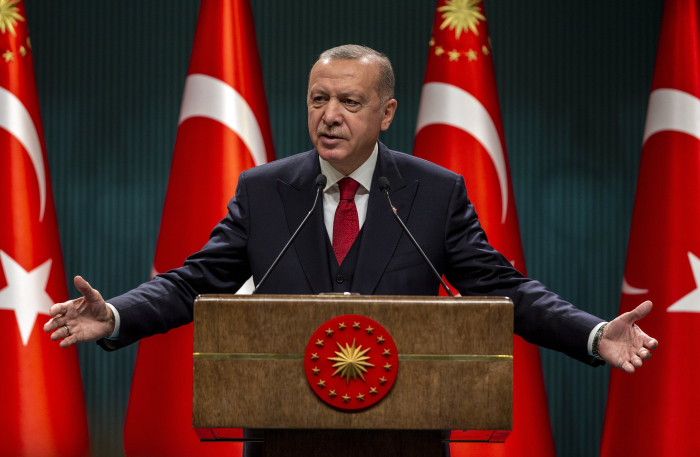Currency
Experts cast doubt on S.Korea’s $2 bn currency swap deal with Turkey
The Bank of Korea says that crisis management was not the primary motive in signing the deal with Turkey
By Aug 12, 2021 (Gmt+09:00)
2
Min read
Most Read
LG Chem to sell water filter business to Glenwood PE for $692 million


KT&G eyes overseas M&A after rejecting activist fund's offer


Kyobo Life poised to buy Japan’s SBI Group-owned savings bank


StockX in merger talks with Naver’s online reseller Kream


Meritz backs half of ex-manager’s $210 mn hedge fund



South Korea and Turkey have signed a $2 billion currency swap agreement to boost bilateral trade and strengthen cooperation in the financial sector, according to the Bank of Korea on Aug. 12.
The deal, signed by the Bank of Korea and the central bank of Turkey, is the first currency swap between the two countries and will be effective for three years from the agreement date.
A currency swap is a financial tool that allows participating nations to borrow foreign currency from each other using home currency at a pre-arranged exchange rate. It is considered an effective instrument that grants a country more liquidity at times of financial turmoil.
“The currency swap with Turkey aims to expand bilateral trade and further drive economic growth with stronger partnership in the financial sector,” said a Bank of Korea representative.
South Korean currency experts, however, are questioning whether the swap will bring any practical benefit to Korea. They highlight that Turkey’s financial market has been unstable for some time and its currency, the Turkish lira, has low credibility in the foreign exchange scene.
The swap was initially proposed by Turkey in May 2020, when it was facing increased financial instability under the Erdogan administration. The Turkish president’s populist policies have cut the country’s benchmark interest rate from 24.00% per annum in September 2018 to 8.25% by May 2020. To achieve his goals to drastically lower the benchmark rate, Erdogan has fired a total of three chiefs of the Turkish central bank.
Such a sharp drop in the interest rate made foreign investors look for better opportunities outside Turkey, further driving down the value of the Turkish lira in the foreign exchange market.
Turkey’s macroeconomic figures are also worrisome. The country last year recorded a trade deficit of $37.3 billion, followed by a $7.88 billion deficit in the first quarter of this year. Its foreign reserves also went down from $105.7 billion in 2019 to $97.7 billion by June 2021.
In facing the criticism from the currency experts, the Bank of Korea highlighted that the primary purpose of signing currency swap deals with emerging market countries is economic partnership rather than crisis management.
“With more developed countries, we sign currency swaps primarily for crisis management purposes. With emerging market countries, our primary motive is to strengthen economic and financial cooperation,” said a Bank of Korea official.
Aside from the recent deal with Turkey, South Korea is currently under agreement with eight other countries for currency swap: $60 billion swap deal with the US; $59 billion with China; $10.6 billion with Switzerland; $10 billion with Indonesia; $8.1 billion with Australia; $5.4 billion with the UAE; $4.7 billion with Malaysia; no pre-arranged cap with Canada.
South Korea is also part of the Chiang Mai Initiative Multilateralization (CMIM), a multilateral currency swap arranged among the ASEAN+3 members, which allows South Korea to swap $38.4 billion in case of financial turmoil.
Write to Ik-hwan Kim at lovepen@hankyung.com
Daniel Cho edited this article.
More to Read
-
 [Exclusive] Digital currencySamsung Group joins Kakao in Bank of Korea’s digital currency project
[Exclusive] Digital currencySamsung Group joins Kakao in Bank of Korea’s digital currency projectAug 04, 2021 (Gmt+09:00)
1 Min read -
 [Exclusive] Central bankingFed’s Powell, BOK chief to meet during G20 gathering
[Exclusive] Central bankingFed’s Powell, BOK chief to meet during G20 gatheringJul 09, 2021 (Gmt+09:00)
1 Min read -

Comment 0
LOG IN


